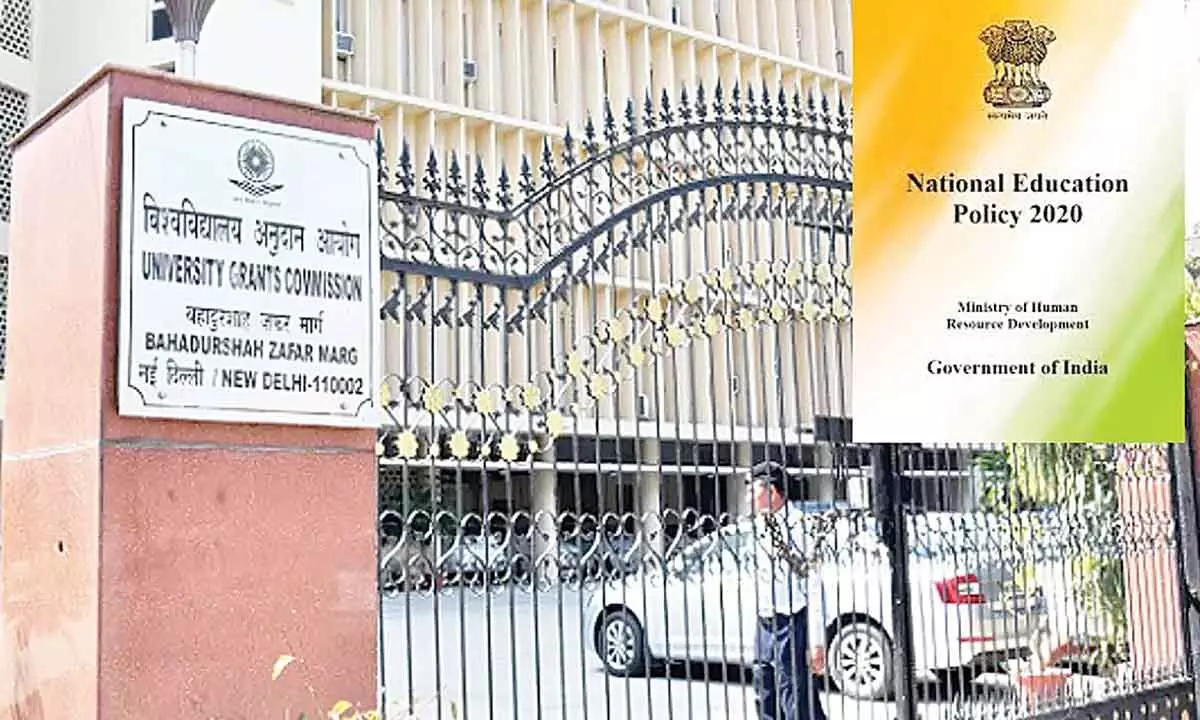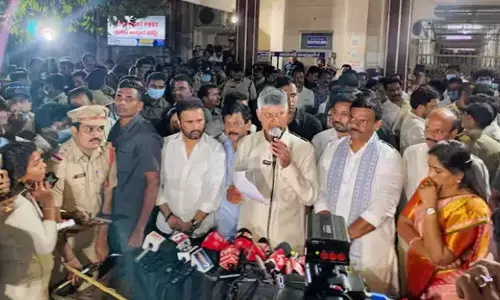Technology, environment, education shape societal development

Society is a dynamic and not a static unit of the universe. The Versatile development of the society depends on a number of things and some of the most prominent things among them are the technology, environment and multidisciplinary system of education propounded by National Education Policy 2020 to envision an education system to transform India into a vibrant and global knowledge Super Power.
The significance of the technology is that it obtains and disseminates the information easily, improves the work efficiency promptly, saves the time and efforts considerably, reduces the cost significantly and provides different products and services accurately. In nutshell, it makes the life comfortable in all respects in the society. However, it must be remembered that it does not commence from the natural world and originates from the emerged, collected and disseminated scientific knowledge in the form of machines, tools, techniques and activities and make changes in the life styles of the people in the society to meet their needs efficiently and solve their problems effectively.
As such, it has provided easy access to the people to energy, electricity, sanitation, water, food products, safety and security measures, communications, transportations and health care services. Further, the decline of the poverty was also prominently driven by the increased productivity from the technological changes. Moreover, we can expect the more effective products and efficient services in every walk of the life in future too, because of the emergence of the newer technology day by day. It is, therefore, technology has assumed considerable importance in society.
The environment is yet another inevitable thing for the society. It plays an important role for the existence of healthy life on the earth. The earth is a home for different species and we all are dependent on the environment for air, water, food and a number of other needs. It is, as such, ineluctable for the society to save and safeguard our environment from being polluted and contaminated with harmful and poisonous substances so as to ensure healthy living on the earth.
The use of the technology is unavoidable for the obvious reasons and the protection of the environment is paramount. But the other side of the technology is that it causes irreparable damage to the environment in a number of ways. Further, manufacturing of the technology creates a large amount of waste which affects the environment. The electronic waste or e-waste like the broken or unwanted electrical and electronic devices seem to be the most rapidly growing type of waste currently. It contains non-biodegradable materials, heavy metals and toxic materials.
They leak into the ground and contaminate the water we drink, the plants we eat and the animals that live around such areas and cause nausea, diarrhoea, vomiting and even cancer. Moreover, the carbon emissions that get released into the atmosphere from the motors, vehicles, aeroplanes, power plants, factories and the digital technologies generate radiation and contribute to global warming. Furthermore, the use of technology results in automation of the routine and repetitive tasks, eliminates many jobs and leads to unemployment and unrest in society.
Above all, the usage of technology causes technology addiction in the people on one hand which may lead to health hazards and come in the way of human relations and results in cyber bullying on the other hand which may occur in mental health issues, increased stress and anxiety, depression, violent behaviour, low self-esteem and long lasting emotional effects, even if the bullying is stopped. Thus the negative side of the technology is that it is the main source of many environmental and social problems.
However, the technology is also a key to address a number of environmental issues. Such technology is called Green Technology, Clean Technology, Eco-friendly Technology. It means the use of science and technology to protect the world’s natural resources, develop eco-friendly products and services and mitigate the negative environmental impact of human activities to protect our earth. The Green Technology reduces the green house gas emissions, combats climate change and decreases reliance on finite fossil fuels. It includes solar, wind and hyper power, sustainable transportation, waste management and recycling, energy efficiency solutions etc.
The Green Technology is the result of the efforts made by the scholars with the background of science and technology. However, the social sciences have also contributed for the protection of the environment. But their contribution is broadly confined to create awareness in the society towards the protection of the environment, understand and preach the ways that the laws and the institutions can be designed to solve the environmental problems and analyse the laws and institutions so formed and suggest further measures to safeguard the environment in time more effectively and efficiently. The need of the hour is therefore, to extend and expand the role of the scholars of Social Sciences, Arts, Humanities, Commerce, Management and all other branches of the knowledge in the process of protection of environment by the provision of versatile education to them.
The above briefed need is one of such contexts where the multidisciplinary system of education, propounded by the NEP-2020, has assumed considerable importance. One of the fundamental principles that has been emphasized in the NEP-2020 to provide basic guidance to the education system and equally for the individual institutions is ensuring focus on multidisciplinary and a holistic education across the Sciences, Social Sciences, Arts, Humanities and all other disciplines for a multidisciplinary world in order to ensure the unity and integrity of all the knowledge. Further, it will restore the Indian long tradition of education called “Knowledge of 64 Kalaas” from the ancient Indian universities like ‘Takshashila’ and ‘Nalanda’. The multidisciplinary form of education, proposed by the NEP-2020, has aimed for critical thinking and more holistic, discussion based, analysis based, inquiry based and discovery based learning for gaining deeper knowledge of the subjects leading to innovations. It is exactly the kind of education that will be required for the 21st Century. It will enable us to have holistic education and develop youth with versatile and creative knowledge in every field. This form of education will certainly result in producing scholars with intensive knowledge of the environment and issues of the environment who will be capable enough to innovate eco-friendly technology to be helpful for the society for its versatile development without affecting the environment.
The Higher Education Institutions should, therefore, cope up with the intended, integrated and comprehensive NEP-2020 in general and multidisciplinary system of education propounded by it in particular, make road map and implement them in their true spirit and letter to produce multi talented scholars to address the critical issues of the society, including the issues of technology and environment, for the civilised existence of human beings on the planet earth.
(The writer is Ombudsperson, Apex Professional University, Pasighat, Arunachal Pradesh, former In-charge Vice-Chancellor, Pro Vice-Chancellor, Registrar, Dean of Arts & Social Sciences, Maulana Azad National Urdu University, Hyderabad – TS, former VC, Sri Krishnadevaraya University, Anantapuram, AP)










